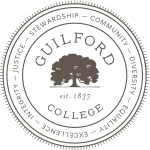Founded in 1837, Guilford College is a small, private liberal arts college located in Greensboro, North Carolina. With an emphasis on a close-knit community and personalized education, Guilford College caters to approximately 1,500 students, offering a serene campus environment within a suburban setting. The college boasts a strong commitment to Quaker and liberal arts traditions, prioritizing values such as integrity, diversity, and community engagement amidst a landscape of rigorous academic pursuit.
Guilford College is distinctive for its integration of the Early College program, which allows high school students to enroll in college courses and earn credit, demonstrating a commitment to educational innovation and accessibility. Equally, the college is known for its Guilford Edge program-a reimagined approach to a liberal arts education that emphasizes hands-on learning, cross-disciplinary studies, and career-preparedness. This initiative includes cutting-edge opportunities such as the Experience Expo-showcasing student projects and research-and themed semesters that allow in-depth exploration of global issues. The campus is also noted for its green initiatives, featuring the Guilford Farm and a commitment to sustainability that permeates campus operations.
Celebrating its accomplishments, Guilford College prides itself on a rich history of social justice and inclusivity. This is reflected in the diversity of its student body and in the curriculum it offers. The college's strong programs in Community and Justice Studies, Peace and Conflict Studies, and Environmental Studies act as a testament to its mission to create active and engaged global citizens who are prepared to contribute positively in a diverse and interconnected world. Alumni, furthering this legacy, have distinguished themselves in various realms from grassroots activism to leadership roles in public and private sectors.
Nonetheless, Guilford College faces its share of challenges. Like many private institutions, it isn't immune to the pressures of financial sustainability in an increasingly competitive higher education landscape. Declining enrollment rates in recent years have forced the college to reevaluate its program offerings and make difficult financial decisions. For instance, several majors were phased out in an effort to consolidate resources, a move that sparked discussion about the balance between tradition and adaptation. These challenges underscore the complexity of maintaining the ethos of a liberal arts institution while navigating the practicalities of modern-day higher education.



